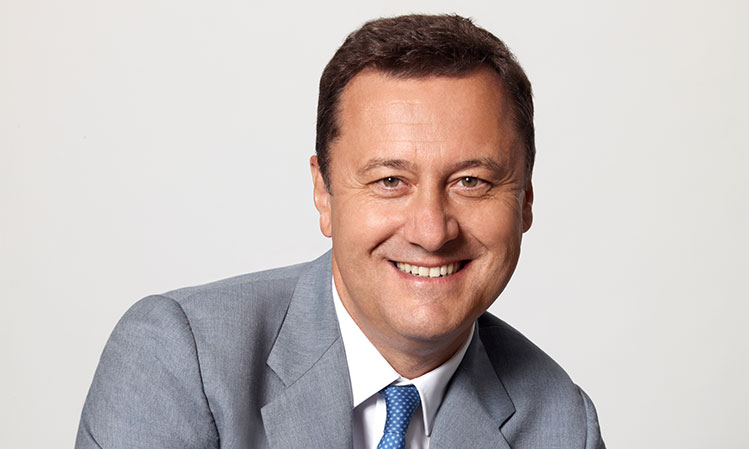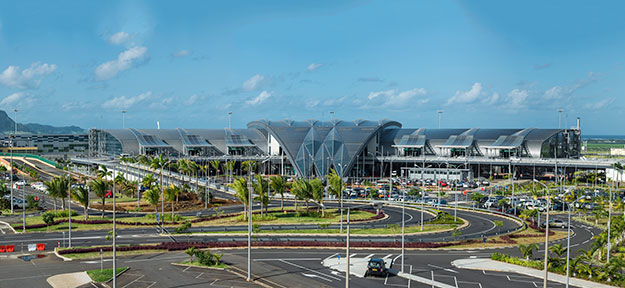What makes great ORAT (Operational Readiness and Airport Transfer)? Antonin Beurrier, CEO ADP International, Groupe ADP, will explore that question in the Airport Operations Conference at this year’s ACI Airport Exchange. He shared some insights into Groupe ADP’s international strategy with Ross Falconer.

Antonin Beurrier, CEO ADP International, Groupe ADP: “Groupe ADP’s Connect 2020 strategic plan aims to make international activities the group’s third main business. To achieve this goal, we will capitalise on our assets as we are one of the few airport operators worldwide to offer expertise across the entire airport value chain.” Copyright: Stéphane de Bourgies ADP
Groupe ADP created ADP International in July. What are the international strategy and goals of Groupe ADP?
Antonin Beurrier: Groupe ADP’s Connect 2020 strategic plan aims to make international activities the group’s third main business. To achieve this goal, we will capitalise on our assets as we are one of the few airport operators worldwide to offer expertise across the entire airport value chain: airport design, master plan, engineering, operations, retail, IT, real estate, etc. So we are now going for a more integrated approach.
Over the last 12 months, Groupe ADP has been bolstering its international teams and implementing a new organisation with ADP International: a new wholly-owned subsidiary, which includes all the international business units. So the group’s three major international activities – investment, airport operations, and innovation-engineering – are now placed under one management within a single entity. ADP International brings greater coherence to roll out an integrated offering and bolstered sectoral expertise, along with closer proximity to clients.
What is your approach to managing Groupe ADP’s international portfolio?
Beurrier: The group’s expertise serves a network of 26 airports worldwide and more than 245 million passengers. We manage this portfolio with caution, carefully considering financial conditions and risks, but also in a dynamic way and with a sense of timing. For instance, in October 2016, we sold, under very good financial conditions, our equity interest in the Mexican airport operator OMA, which operates 13 Mexican gateways that include Acapulco and Monterrey. We are, however, continuing to provide technical assistance and operational advice until the end of 2018. Earlier this year, we also sold our stake in TAV Construction, as the development of the company started to differ from ADP’s core business.
As an operator, we are looking for four criteria: growth, use of Group skills, control of the asset, and profitability. As a consequence, we are more focused on complex projects in which we can provide added value, using our skills and expertise. A good example is the concession of Madagascar’s Ivato International Airport in Antananarivo and Fascene International Airport in Nosy Be, as part of a concession contract signed for a period of 28 years with the Government of the Republic of Madagascar. These two airports are expected to see their annual average passenger numbers increase by at least 5% over the coming years, and we’re going to develop routes and facilities with our partners: the Bouygues group, Colas Madagascar and Meridiam.
Groupe ADP’s ambition is to become a global leader in the design and operation of airports. How will the roll-out of the international development strategy help facilitate that?
Beurrier: Designing and managing airports with all the engineering and commercial aspects is a complex task and requires specific expertise and know-how. Groupe ADP has a long and strong track record in these fields, demonstrating a real ability to boost passenger traffic and attract new airlines, and develop commercial and real estate revenues which constitute a crucial part of the business model for an international airport. Our new organisation brings together all this expertise under one roof, enabling us to propose more integrated solutions to airport authorities and obviously to strengthen our attractiveness.
Furthermore, the recruitment of high-level professionals such as Fernando Echegaray, former Deputy CEO of the Spanish network at Aena, who is in charge of global operations and management of Groupe ADP’s network of airports, or such as Gratien Maire, CEO of ADP Ingénierie subsidiary, is making the team truly international. In order to be more efficient in the prospection of new markets and to facilitate business development of our stakes, we have decided to open two new regional offices alongside our Middle East base, through TAV Airports, in Istanbul: the first in New York for the Americas, and the second in Hong Kong for the whole of Asia.

ADP International was created in July, bringing Groupe ADP’s three major international activities – investment, airport operations, and innovation-engineering – together within a single entity. The group’s expertise serves a network of 26 airports worldwide, including Sir Seewoosagur Ramgoolam International Airport in Mauritius. Copyright: ATOL
What are the main areas you are targeting for future international expansion?
Beurrier: Our aim is to strengthen our geographical footprint in the regions where we already operate (the Middle East, Latin America) and to develop in the regions and countries offering strong opportunities (Asia, Africa and North America). In Asia and the Middle East, higher levels of traffic growth are leading to the construction of new airports, and in South America governments are launching privatisations to adapt and expand facilities.
This means that throughout the world there are a lot of opportunities to invest; however, we must focus on airports to which we can bring added value and boost passenger traffic. For instance, we are currently in discussions in Vietnam and in Cuba.
Groupe ADP has reinforced its involvement as a leading shareholder in TAV Airports, while selling its stake in TAV Construction. How do these developments fit into your overall international development strategy?
Beurrier: Groupe ADP has been a 38%-shareholder in TAV Airports since 2012 and we are very happy with this investment. We had the opportunity, by acquiring an additional 8% stake, to reinforce its involvement in the company. Now we are a leading shareholder with a 46.12% stake in the share capital of TAV Airports and TAV Airports will be fully integrated in Groupe ADP’s accounts. TAV Airports currently operates 14 airports in Turkey and around the world, and served 104 million passengers in 2016. The group is fully vertically integrated and provides all commercial services in the airports in which it operates, and provides airport services at many airports around the world.
Regarding TAV Construction, the exposure to non-airport building projects led us to proceed with the sale of its 49% stake in the holding company for an amount of €9 million.
What are the role and future of the ADP Ingénierie subsidiary, following the creation of ADP International?
Beurrier: As the engineering subsidiary of Groupe ADP, ADP Ingénierie naturally plays a leading role in the group’s new international expansion strategy. Headed by Gratien Maire, ADP Ingénierie is currently managing 80 projects worldwide and is developing a new strategy based on recent market trends, new client needs and the opportunities provided by new technologies. So this business, which historically was very focused on the Middle East region, is now more homogeneously spread across the five continents, as ADP Ingénierie strengthens its position in Asia, Africa and the Americas.
How important is innovation to the international business?
Beurrier: Innovation and new technologies are key drivers in the improvement of the airport experience for airlines and passengers. Groupe ADP has developed an overall innovation approach called ‘Innovation Hub’, allowing us each year to lead around 15 experimentation programmes dedicated to the smart airport, robotics or new mobility solutions. Some of these innovations are then implemented within the terminals at the Paris airports with the possibility that in the future they could be rolled out in the airports we manage abroad.
The sharing of know-how and expertise is crucial. That’s why we have recently renewed our cooperation agreement with Schiphol Group and Incheon International Airports Corporation, thereby extending the exchange of best practices into new areas, including innovation and digital technologies. In the same vein, we have launched ‘Play your Airport’, the first worldwide challenge to imagine the airport of the future, open to students, travellers, executives and airport staff.







